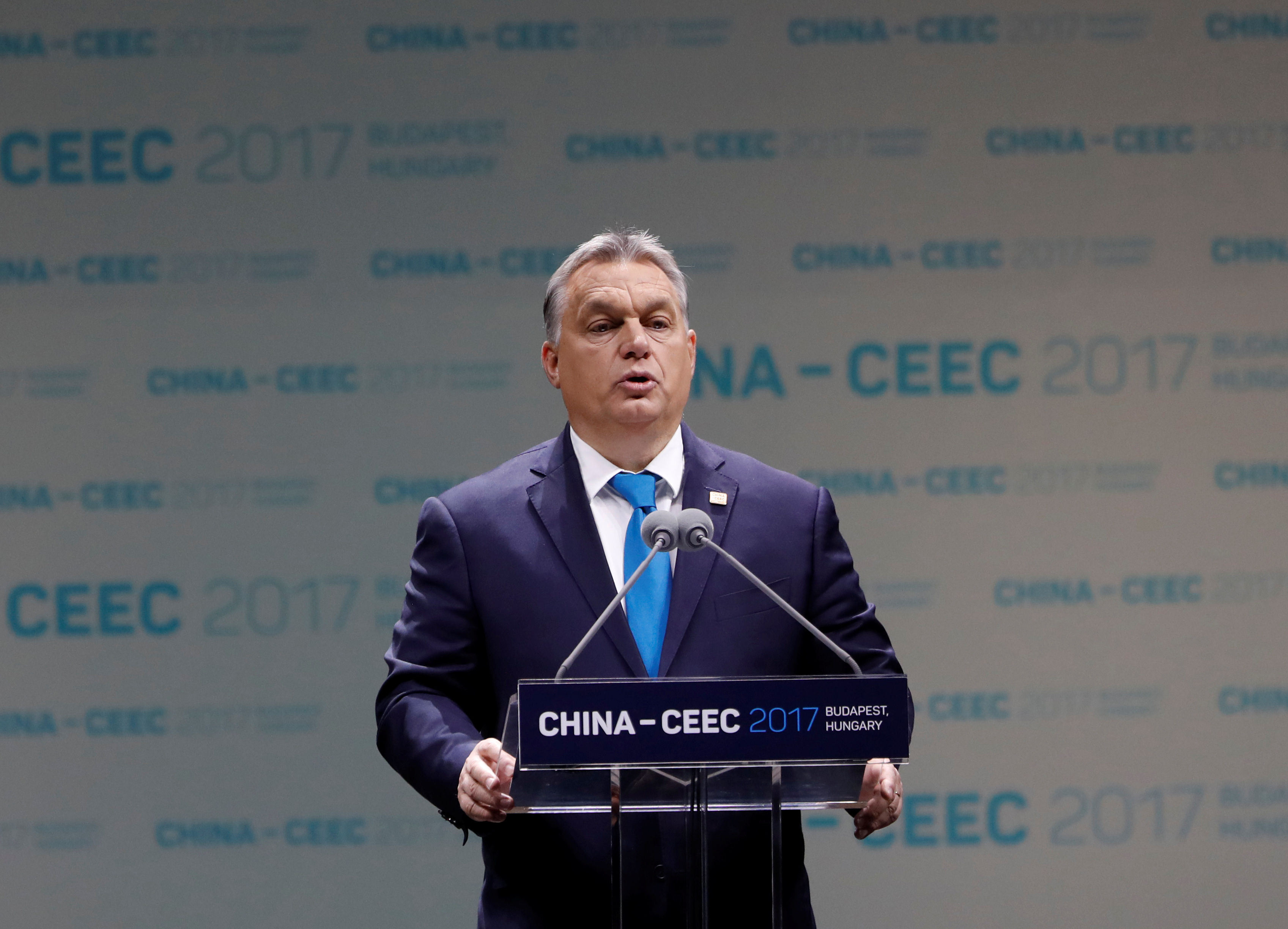In unusual move, China offers to back Hungary in security matters

By Liz Lee and Ryan Woo
BEIJING (Reuters) -China offered to support long-time strategic partner Hungary on public security issues, going beyond trade and investment relations, during a rare meeting of a senior Beijing official with Prime Minister Viktor Orban.
China hopes to deepen law enforcement and security ties with Hungary as the two mark their 75th year of diplomatic relations, Public Security Minister Wang Xiaohong told Orban last week, the official Xinhua news agency reported on Sunday.
During a visit to Budapest, Wang said he hoped such efforts would be “a new highlight of bilateral relations” in areas such as combating terrorism and trans-national crimes.
They would also encompass security and law enforcement capacity building under President Xi Jinping’s Belt and Road Initiative, which aims to link China with the world through trade and infrastructure links.
Wang also met Interior Minister Sandor Pinter and signed documents on law enforcement and security co-operation, Xinhua said, but did not give details.
China’s security assurances come as Hungary has sought to assert its independence from Western countries in the past decade under Orban.
While Hungary is a member of both NATO and the European Union, it maintains close economic ties with Moscow, getting most of its crude oil and gas from Russia.
Budapest has been repeatedly at odds with the EU over its financial and military support for Kyiv and Hungary is the only NATO state that has not ratified Sweden’s application to join the security bloc prompted by Russia’s invasion of Ukraine.
China has been critical of NATO, especially after the bloc said last year that Beijing had challenged its interests, security and values with its “ambitions and coercive policies”.
Chinese state media have called NATO a “grave” challenge to global peace and stability.
The security pact with Hungary represents a diplomatic win for China in the European Union, as the bloc weighs its ties with the world’s second-largest economy over differences on human rights, trade imbalances and Russia’s invasion of Ukraine.
The central European country’s growing affinity to Beijing has already put a wedge in the EU’s collective front.
On several occasions, Hungary has stood aside or opposed EU positions critical of China on issues such as human rights, and welcomed Chinese investments despite the EU’s call for members to align relations with China with those of the bloc.
Hungary is home to Huawei Technologies’ largest logistics and manufacturing base outside China, despite European Commission warnings that the telecom giant poses a risk to EU security.
Since 2016, Huawei has partnered with Shanghai-based artificial intelligence firm Yitu Technology to work on solutions for smart cities to enhance public safety and policing with the use of AI and surveillance.
Hungary will soon host Chinese carmaker BYD’s first European factory.
(Reporting by Liz Lee and Ryan WooEditing by Tomasz Janowski)







